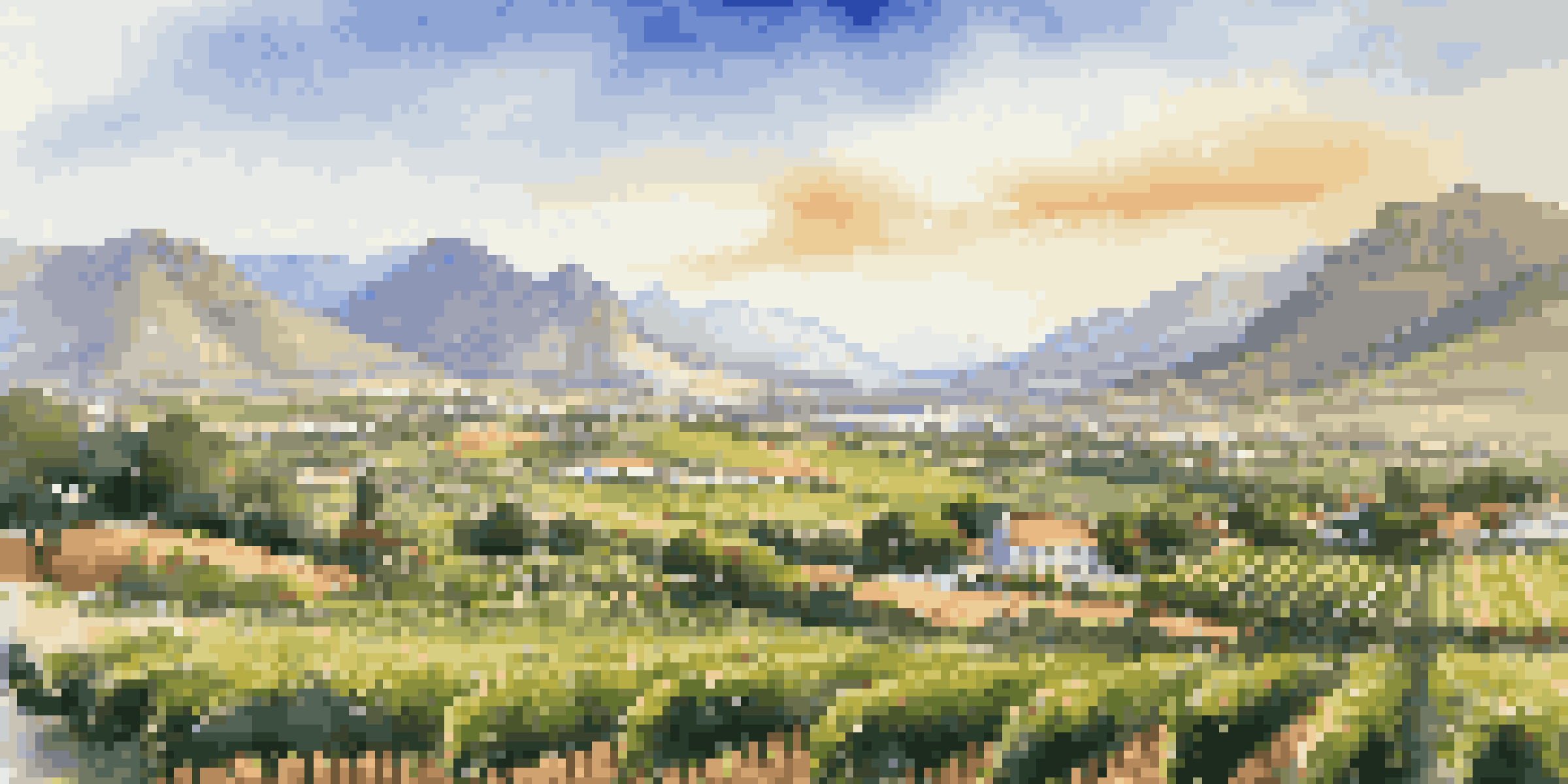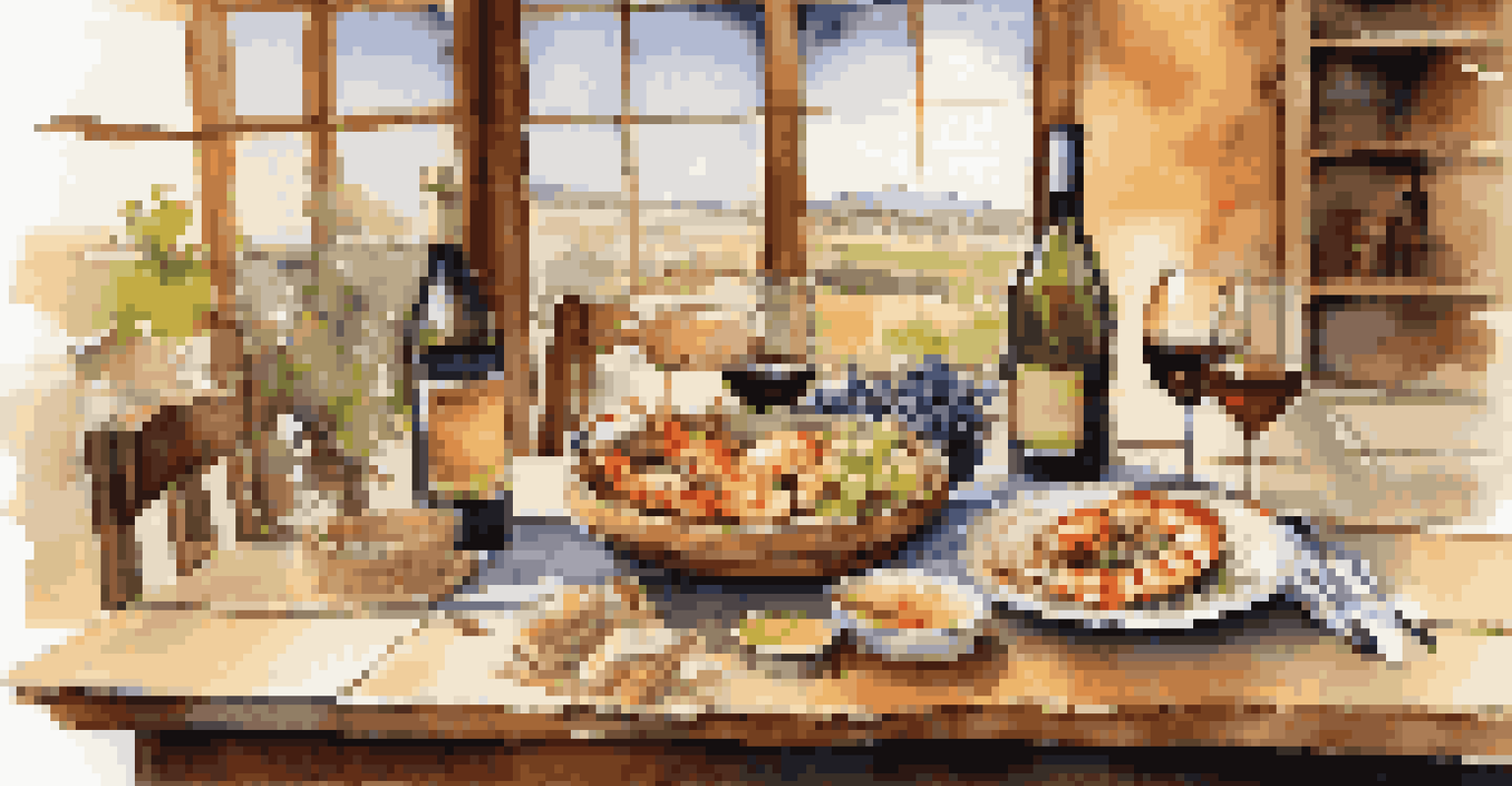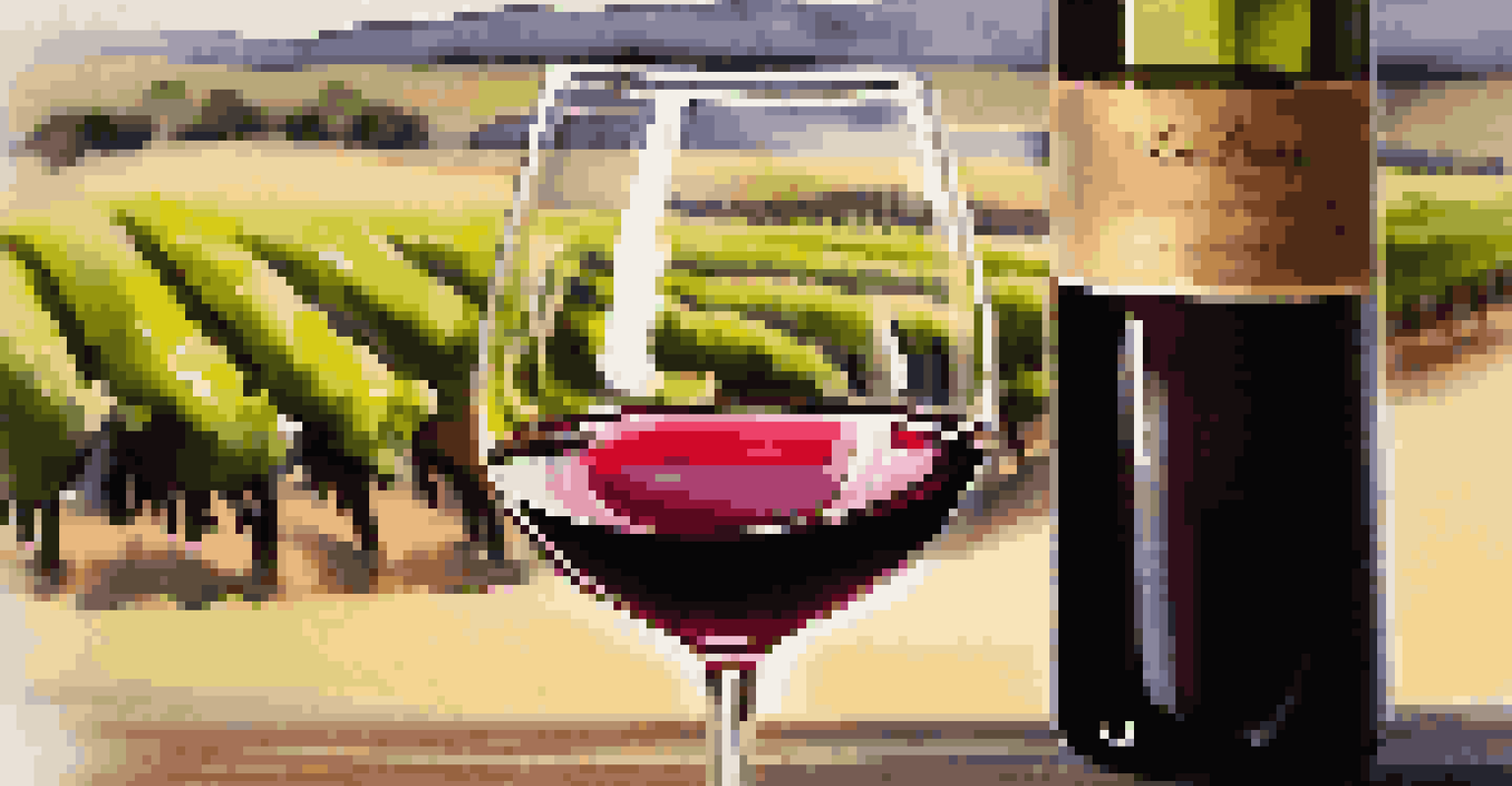Exploring the Unique Flavors of South African Wines

A Brief Introduction to South African Wines
South Africa's wine industry is a treasure trove of flavors and traditions, boasting a history that dates back to the 17th century. The country's unique terroir, influenced by its diverse climates and soils, gives rise to a wide range of wines that are distinctively South African. From the rolling vineyards of Stellenbosch to the cooler coastal regions, each area contributes its own unique characteristics to the wines produced.
Wine is sunlight, held together by water.
Today, South African wines are celebrated for their quality and diversity, with a growing reputation on the international stage. The blend of traditional winemaking techniques and innovative practices allows for a fascinating exploration of flavors that cater to every palate. Whether you're a seasoned wine connoisseur or a curious novice, South African wines offer an exciting journey worth embarking on.
In this article, we’ll delve into the unique flavors of South African wines, exploring the regions, grape varieties, and the stories behind these exceptional bottles. So, pour yourself a glass and let’s discover what makes these wines so special.
The Role of Terroir in Flavor Profiles
Terroir, a French term that refers to the unique environmental factors affecting a vineyard, plays a crucial role in the flavors of South African wines. From the soil composition to the climate conditions, each element contributes to the final taste in the bottle. For example, the cooler coastal regions often yield wines with crisp acidity, whereas the warmer inland areas produce fruit-forward wines with rich flavors.

The Cape Winelands, with its varying altitudes and microclimates, showcase how terroir can create distinct flavor profiles even within a single grape variety. Cabernet Sauvignon from Stellenbosch, for instance, tends to be more robust and full-bodied, while the same grape grown in the cooler Hemel-en-Aarde Valley offers a more elegant and nuanced experience. This diversity allows wine lovers to explore a vast range of tastes from the same grape.
Diverse Flavors from Unique Terroir
South Africa's unique terroir, shaped by its varied climates and soils, contributes to a remarkable range of wine flavors.
Understanding terroir adds an enriching layer to the wine-tasting experience. It invites us to appreciate not just the wine itself, but the land and people that bring it to life, making each sip a connection to South Africa’s rich heritage.
Exploring South Africa's Signature Grape Varieties
When it comes to South African wines, certain grape varieties stand out as signatures of the region. Chenin Blanc, often referred to as ‘Steen,’ is the country’s most widely planted grape, known for its versatility and ability to produce wines ranging from dry to sweet. This grape thrives in various terroirs, resulting in a spectrum of flavors that can include notes of apple, honey, and even tropical fruits.
The land is the source of our wines, and we must respect it.
Another notable variety is Pinotage, a unique cross between Pinot Noir and Cinsaut, which embodies the spirit of South African winemaking. Its bold flavors often include dark fruits, chocolate, and earthy undertones, making it a favorite for those who enjoy rich, full-bodied wines. The story of Pinotage is a testament to South Africa’s innovative approach to winemaking and its commitment to developing its own identity.
Lastly, Shiraz from regions like Swartland offers a taste of the country’s warmer climates, with wines that are peppery and fruit-forward. Each of these signature varieties reflects the diverse climates and soils of South Africa, inviting wine enthusiasts to explore and enjoy the country's rich viticultural landscape.
The Influence of Winemaking Techniques
Winemaking techniques in South Africa have evolved significantly over the years, merging traditional methods with modern innovations. Many winemakers focus on minimal intervention, allowing the natural characteristics of the grapes and terroir to shine through. This approach often results in wines that are true expressions of their origins, showcasing the unique flavors inherent to South African vineyards.
Moreover, the use of oak barrels can profoundly influence the flavor profile of a wine. For instance, wines aged in French oak often exhibit subtle spice and vanilla notes, complementing the fruit flavors beautifully. Conversely, American oak can impart bolder flavors, such as coconut or dill, adding complexity to the final product.
Signature Grapes Define the Region
Grape varieties like Chenin Blanc, Pinotage, and Shiraz highlight the distinctiveness of South African wines, each offering unique flavor profiles.
These winemaking decisions, combined with the unique grape varieties and terroir, create a diverse range of wines that cater to different tastes. Whether you enjoy a crisp, unoaked Chenin Blanc or a rich, oaked Cabernet Sauvignon, the techniques employed in crafting these wines play a pivotal role in defining their character.
Pairing South African Wines with Local Cuisine
Pairing wine with food can enhance the tasting experience, and South African wines offer fantastic options to complement local cuisine. The country's diverse culinary landscape features flavors influenced by indigenous ingredients, Dutch, Malay, and Indian spices, making it a vibrant gastronomic experience. For instance, a well-chilled Chenin Blanc pairs wonderfully with fresh seafood, complementing dishes like grilled snoek or pickled fish.
For heartier meals, such as a traditional braai (barbecue), a robust Shiraz or a full-bodied Pinotage can elevate the flavors of grilled meats. The richness of these wines harmonizes beautifully with the smoky notes of the grilled dishes, creating a delightful balance on the palate. South African wines excel at enhancing the experience of local dishes, offering a taste of the culture in every sip.
Exploring wine and food pairings is a joyous adventure, allowing you to discover new flavor combinations and experiences. By experimenting with different South African wines alongside local cuisine, you can truly appreciate the harmony between the two, making every meal a celebration of the country's rich heritage.
The Rise of Sustainable Winemaking Practices
Sustainability in winemaking has become an essential focus for many South African producers, driven by a growing awareness of environmental impact and the desire to preserve the land for future generations. Many wineries are adopting organic and biodynamic practices, minimizing chemical use and fostering biodiversity in the vineyards. This shift not only benefits the environment but also enhances the quality of the grapes.
In addition to organic practices, many South African winemakers are embracing water conservation techniques and renewable energy sources. Given the country's semi-arid climate, these practices are crucial for ensuring that wine production remains viable while preserving precious resources. The commitment to sustainability is evident in the growing number of certified organic and biodynamic wineries across the country.
Sustainability Shapes Future Winemaking
The rise of sustainable practices among South African wineries reflects a commitment to environmental stewardship while enhancing wine quality.
As consumers become more conscious of their choices, supporting sustainable wineries can also be a rewarding experience. Not only do you enjoy exceptional wines, but you also contribute to a movement that values environmental stewardship and responsible winemaking. In this way, the journey through South African wines becomes not just about taste but also about making a positive impact.
The Future of South African Wines
Looking ahead, the future of South African wines appears bright, with continued innovation and exploration on the horizon. Young winemakers are experimenting with new grape varieties and blends, pushing the boundaries of traditional winemaking to create exciting, modern expressions of South African terroir. This exploration is attracting attention from wine enthusiasts around the world, eager to discover what these innovative producers have to offer.
Furthermore, there is an increasing emphasis on the importance of terroir, with many wineries now focusing on single vineyard expressions. This approach allows consumers to experience the unique characteristics of specific sites, showcasing the diversity of flavors within the country. As these practices gain traction, the reputation of South African wines on the international scene is likely to strengthen.

In conclusion, the journey through South African wines is one of discovery, filled with unique flavors and stories waiting to be uncovered. As the industry continues to evolve, embracing sustainability and innovation, wine lovers can look forward to exploring even more exciting offerings from this remarkable wine-producing nation.